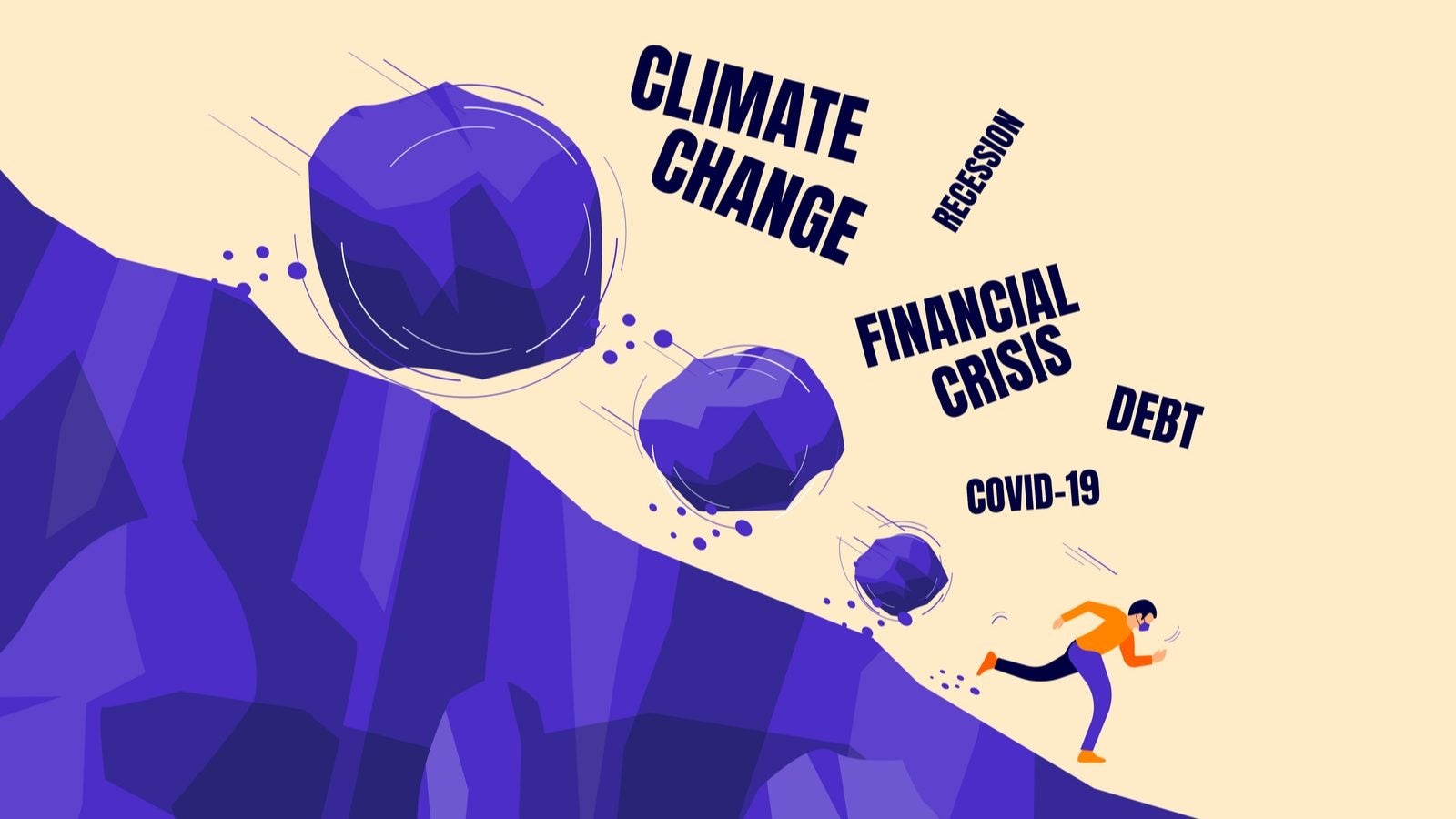Wildfires and flooding have become increasingly common due to the effects of climate change. As these changes increase, they are expected to majorly impact a financial system already under pressure from the Covid-19 pandemic. Macroeconomic influencers share their views on the Covid -19 impact.
Matthew E. Kahn
Matthew E. Kahn, Bloomberg Distinguished Professor of Economics and Business at Johns Hopkins University, shared an article on how a new report from the US Commodity Futures Trading Commission has highlighted the impact of climate change on financial markets.
The report states that the disruptions caused by climate change can threaten the fundamental conditions that support the country’s financial system. President Donald Trump had downplayed the impact of climate change on economic growth. The new report is a first from a government entity highlighting the damage that climate change can have on financial markets.
The first risk posed by climate change is expected to be rising prices of homes and mortgage default rates due to the wildfires and flooding. Climate change is also expected to impact agricultural commodity prices, the report added.
Academic finance features many excellent scholars. As Mother Nature changes the "rules of the game", how will financial markets evolve to help us handle the risks? Financial engineering and climate risk merits new work! (1/N) https://t.co/xRA5xlVnSk
— Matthew E. Kahn (@mattkahn1966) September 9, 2020
 GlobalData Strategic Intelligence
GlobalData Strategic IntelligenceUS Tariffs are shifting - will you react or anticipate?
Don’t let policy changes catch you off guard. Stay proactive with real-time data and expert analysis.
By GlobalData
David Dayen
David Dayen, executive editor at The Prospect, shared an article on AstraZeneca and the University of Oxford’s Covid-19 vaccine trial being put on hold after one of the participants fell sick after receiving the vaccine. Although the step has been described as routine for such trials, it is expected to delay the clinical trial for the vaccine.
AstraZeneca initially reported positive data from the clinical trial in July raising hopes for a vaccine at the earliest opportunity. However, pausing the clinical trial now raises questions on how long it will take for a vaccine to be available to control the pandemic that has impacted the world.
Nine pharmaceutical companies that are carrying out phase three clinical trials on Covid-19 vaccine including AstraZeneca, GlaxoSmithKline and Sanofi released a statement committing to developing a vaccine based on ethical and scientific principles.
Unsanitized today is about the AstraZeneca vaccine pause, and how it reveals why getting to approval will be such a chorehttps://t.co/LE5oFdReLA
— David Dayen (@ddayen) September 9, 2020
Pedro Nicolaci da Costa
Pedro Nicolaci da Costa, Federal Reserve & economy correspondent at Market News International, shared an article on the increasing pressure on the Federal Reserve to increase main street lending. Without the lending facility, the economy will witness a K-shaped recovery, in which large corporations will survive but small businesses may fail.
The Federal Reserve is distributing loans through large banks who are reluctant to offer them to small businesses. The article notes the Fed should explore extending loans through private lenders who can provide tailored loans to small businesses and help them survive.
"While the Fed has given champagne to the biggest companies, via its easy corporate bond programs, smaller businesses are being forced to catch the drops via a program that is currently not easily accessible." – ex-Fed governor Sarah Raskin https://t.co/yihEBDwgRN
— Pedro Nicolaci da Costa (@pdacosta) September 9, 2020
Andreas Peichl
Andreas Peichl, professor of economics at the University of Munich, shared an article on how Germany’s stimulus measures have helped the country in addressing the downturn caused by the pandemic. As a result, Germany is performing much better than other industrialised countries.
The country’s Economics Ministry has revised its earlier forecast a downturn of 6.3% to 5.8% in 2020 and a growth of 4.4% in 2021. The government has earmarked an economic stimulus package of €130bn ($146bn) for the country for 2020 and 2021.
Germany’s central bank, however, has noted that the stimulus spending for 2020 will result in easing the recession by only 1% considering the huge amount of spending.
German Stimulus Measures Have Bucked the Corona Crisis https://t.co/R1vNDi1ZgW via @derspiegel
„The current figures are downright sensational,” says @ifo_Institut economist Peichl. It is becoming increasingly apparent that the hoped-for V-shaped economic recovery is happening…— Andreas Peichl (@APeichl) September 9, 2020
Prof. Steve Hanke
Professor Steve Hanke, economist at Johns Hopkins University, shared an article on more than 10,000 deaths related Covid-19 in Argentina. The majority of the infection cases are concentrated in the Buenos Aires metropolitan area putting the healthcare system under great stress.
Despite having a strict lockdown, the country has not been able to control the spread of the virus. Quarantine measures have been gradually relaxed but some regions are still under various forms of lockdown. Hanke noted that the situation in the country remains dismal as inflation has increased to 37.25% per year.
#BREAKING: #Argentina has surpassed 10,000 #COVID19 deaths. Sledgehammer #lockdowns have not contained the spread of the virus but instead have caused the #economy to tank. I measure #Inflation at 37.25%/yr.
Arg remains a deadbeat- in short, a basket case.https://t.co/zqNfEXS2kc— Prof. Steve Hanke (@steve_hanke) September 9, 2020




